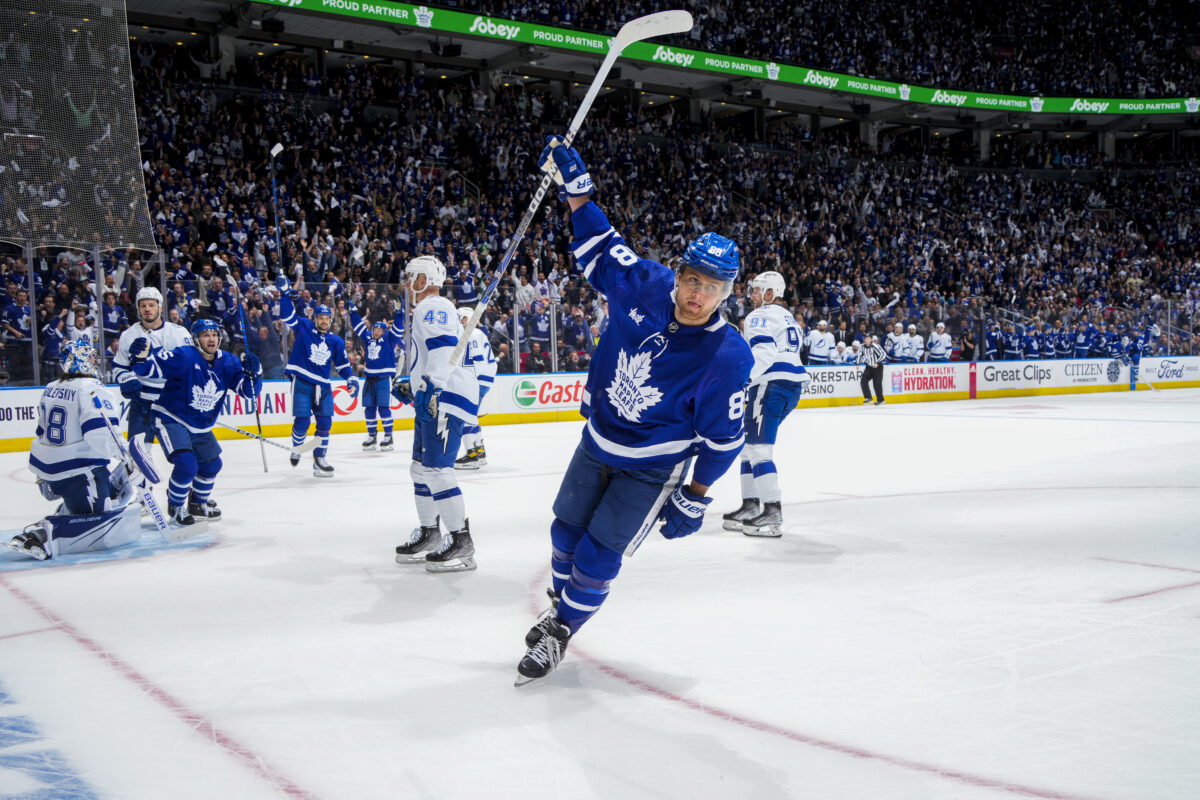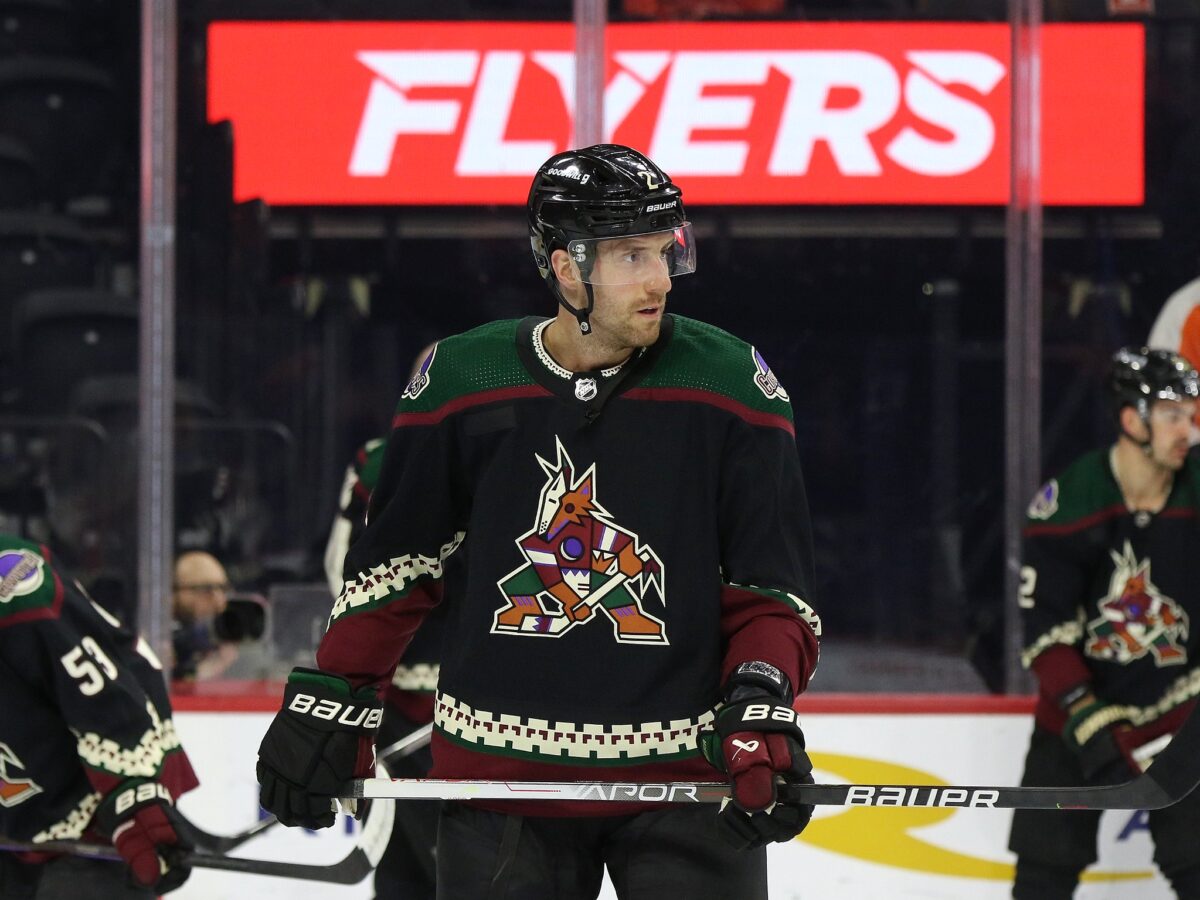I’ll discuss four topics in this edition of Toronto Maple Leafs News & Rumors. First, I’ll talk about what game theory suggests about how the Maple Leafs can best take advantage of the random luck that’s involved in winning the Stanley Cup. Second, in that same vein, I’ll share how few times the best team in the NHL over course of the regular season actually wins the Stanley Cup.
Third, I’ll talk about why rumours that Topi Niemela is on the trading block are probably fictitious and why he should not be traded if they aren’t. Finally, I’ll report that there are NHL defensemen that the team could use as placeholders until its own prospects might be ready for prime time. For example, Patrik Nemeth is a player who just came on the market yesterday.
Item One: What Game Theory Tells Us About Random NHL Luck
In a really interesting post today, Filipe Dimas connected the logic of game theory to the recent history of the Maple Leafs to explore the team’s lack of postseason success. For those who don’t know much about game theory (and why would anyone?), it’s a branch of mathematics and social science that originated in the 1940s to study decision-making in situations where the outcome of one’s actions depends on the choices other “participants” make. It offers a framework to help analyze and understand strategic interactions between rational decision-makers.
Related: Phil Kessel’s Iron Man Streak Didn’t Come Easily
When applied to NHL hockey, game theory stresses the difficulty of winning during the postseason. The key takeaway is that postseason hockey is random and depends on luck. As a result, teams should focus on the only thing they can control. That’s making consistently good decisions over the long run and waiting for luck to go their way. It’s the only strategic way to increase a team’s chances of winning.
Because luck and randomness play significant roles in hockey wins and losses over the short span of postseason play, game theory emphasizes how strategic decision-making mitigates the impact of random luck and maximizes the probability of success. For Dimas, it suggests the Maple Leafs should keep the same core players and run them back for another postseason.

(Photo by Mark Blinch/NHLI via Getty Images)
Despite the Maple Leafs’ struggles in the playoffs, game theory recognizes that the best teams don’t always win – in fact, they seldom win. Thus, by sticking with a core group that demonstrates success during the regular season, the team essentially increases its chances of eventually having a successful postseason run.
Related: Maple Leafs GM’s First Question Will Be About Core Four
Dimas believes the Maple Leafs are closer to a championship than it might seem on paper and suggests that the team should focus on managing (as best they can) the inherent luck and variability of the game.
Item Two: How Often Does the Best Team Win the Stanley Cup?
To further Dimas’ point, over the past 15 seasons, from 2008-09, the team with the best regular-season record has won the Stanley Cup only once. That was during the 2012-13 season when the Chicago Blackhawks finished with the best record in the NHL and went on to win the Stanley Cup.

While having the best regular-season record is an indicator of a strong team, playoff success is influenced by many random factors like injuries, matchups, and overall team performance in high-pressure situations. That’s why regular-season success never guarantees actually winning the Cup. In fact, one out of 15 chances is not that many.
Item Three: Why the Maple Leafs Shouldn’t Trade Topi Niemela
It’s so difficult at this time of the year to ascertain what’s real and what’s contrived drama. Recently there was a rumour that the Maple Leafs’ Topi Niemela was likely to be traded. I’m not buying it, but it’s out there.

Think about it for a minute. There are plenty of reasons not to trade Niemela and very few reasons to do so. He might not be quite ready for prime time, but he’s a talented young defenseman with significant potential. He’s shown promise both in Finland and during his time with the Toronto Marlies. He plays a solid two-way game, with impressive skating ability and the potential to contribute to the power play.
In my mind, Niemela has the chance to develop into a really valuable player for the Maple Leafs in the future. Chief among Niemela’s skills is his exceptional puck management. His on-ice vision and ability to distribute the puck to his teammates make him a slick puck-moving defenseman.
Related: Maple Leafs Commentary: Would Josh Anderson Be a Good Addition?
Although the Maple Leafs are in a win-now mentality (as they always are), the team also must consider the long-term implications of trading away promising prospects like Niemela. By holding onto him, the team benefits from his development and potentially grooms him into a top-four defenseman. In my mind, it’s time to begin investing in the organization’s young talent and allow these prospects to grow within the system.
While there’s uncertainty about Niemela’s future performance and the young defenseman probably needs time to adjust to the NHL’s physicality, why not see what he can do? Trading him now eliminates any potential upside he might bring to the team. I say give Niemela a chance to prove himself and grow into a possible solution to the team’s defensive needs.
Rather than trading Niemela, why not allow the Maple Leafs to discover his potential (or lack of it)? This prospect could be a home run, but the team will never know until he’s given a chance to prove himself on the big stage.
What’s Next for the Maple Leafs?
In thinking about the team’s defence, while I’m hoping and expecting Luke Schenn to re-sign with the team, I do think there are place-holder defensemen the team could sign until young defensemen in the system like Niemela could develop.
For example, Patrik Nemeth was placed on unconditional waivers by the Arizona Coyotes with the intention of buying out the final season of his contract. He’s now an unrestricted free agent (UFA).

Nemeth is a 31-year-old defenseman, who played in 75 games for the Coyotes last season and had a minus-7 rating (which seems pretty good for playing with the Coyotes). He’s played 504 regular-season games with the Dallas Stars, Detroit Red Wings, Colorado Avalanche, New York Rangers, and the Coyotes.
Might he be a player the team could sign on the cheap?
